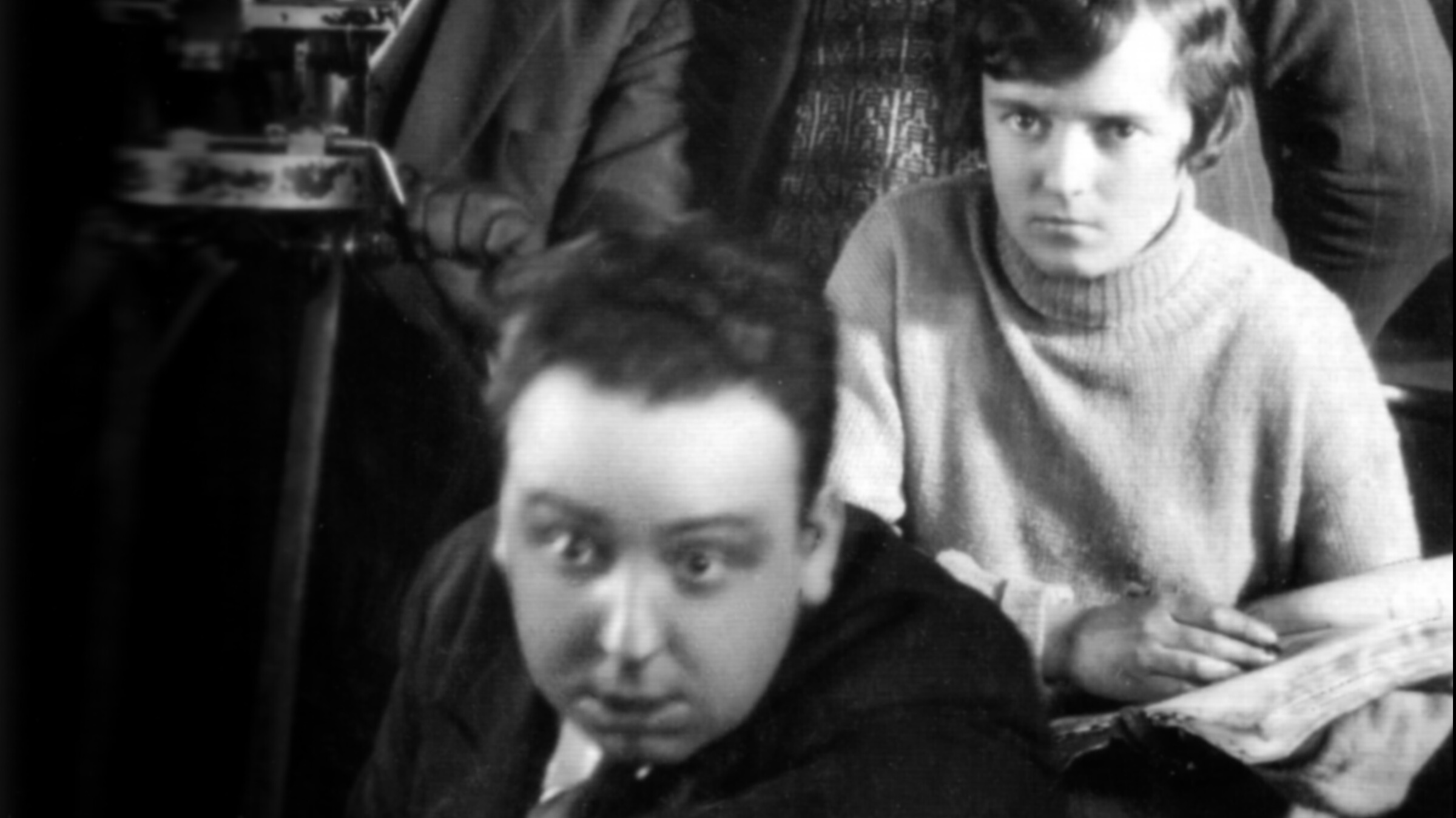This historical reprint was published in conjunction with the screening of The First Born at SFSFF 2013
An interesting article, proving that a woman’s place is not always in the home
A man glancing at a passing girl observes that she is pretty, attractive, or ugly as the case may be, but a woman, obtaining the same fleeting glance, will be able to describe with terrible exactitude every garment she was wearing, how long she has had them, of what material they were made, where they were bought and at what cost.
Women, who comprise the vast majority of picturegoers, subject every screen play they see to this swift and unerring scrutiny. ”If the heroine really did that rough house-work,” they say, “she could never have kept her finger-nails in such perfect condition.” “Don’t tell me that girl is rich, why—you could buy her vanity bag at the bargain counter of a fifth-rate emporium!”
Mere man, even if he be a high and mighty film director, cannot hope to escape the lash of feminine criticism, unless he has as his assistant a super-woman, whose eye is sharper that an eagle’s, whose patience is greater than Job’s, whose staying-power is such that it makes the labours of Hercules look like golf as played by an obese retired chartered accountant!
There is only one such girl in England, and (on the principle that all good things are done up in little packets), she is only four foot eleven and, having bobbed hair, could travel half fare on any railway, were she not too rich to be tempted to cheat even a railway company by passing as under fourteen.
Little Alma Reville is nothing like as unsophisticated as she looks, as some tough film guys have discovered to their cost. A glance at her past career explains why she to-day occupies so unique a position in European films.
When sixteen, Alma suffered, in common with every girl of that age, from a bad attack of filmitis. This disease must not be confused with flicker mania, the chief symptom of which is a wild desire to become a leading lady, and can be cured by three days’ work in a film crowd, after haunting the agents’ offices for three years.
Filmitis is far more deadly—in fact, incurable. It feeds upon scenarios, the glare of arc lamps, the click of the camera, and the snip-snip of the editing scissors. It is technical rather than emotional, it organises, it shoulders responsibility, it ends in the patient becoming either a film director or the inmate of a lunatic asylum.
In the days of the old London Film company, Alma entered Wonderland, the result of a deep laid conspiracy between her father and Harold Shaw, the famous producer. The latter assured the distraught parent that he would effect a magical cure by dumping the head-strong child in the Editing department, which is where films are cut and joined, and which is far apart from all the supposed glamour and excitement of the studio itself.
There, to their surprised dismay, Alma remained as happy as a child with a new toy, and by the time Harold Shaw returned to America, she had reached a technical proficiency so expert that she was entrusted with the cutting of the actual negatives, which represented the expenditure of many tens of thousands of pounds.
Director succeeded director. George Loane Tucker, after making a brilliant cycle of films, returned to America to direct The Miracle Man, and to die, and Maurice Elvey was left to carry on. It was he who realised that Alma’s technical talents were being wasted in the laboratories, and who transposed her to the studio as his floor secretary.
And now the girl’s true film sense and feminine critical faculty had full scope. Always smiling, calm and efficient, her aptitude to assume successfully those heavy responsibilities which fall upon those grouped round the director, soon led her to get a further promotion and she became second assistant director.
It was in this capacity that she joined Lasky’s British producing unit, and during the pictures made by George Fitzmaurice and Donald Crisp she followed the camera into nearly every country in Europe. These journeys abroad continued after Lasky ceased to produce in England [when] she joined Michael Balcon and Graham Cutts, and worked on such pictures as Woman to Woman, The Passionate Adventure, and The Blackguard.
With the extension of Michael Balcon’s film activities came her latest step up the ladder of film fame. When under his auspices Alfred Hitchcock set out for Munich to make that costly and elaborate production The Pleasure Garden, Alma went also, but this time in the capacity of chief Assistant Director.
During this production, she crossed Europe alone to meet Virginia Valli and Carmelita Geraghty at Cherbourg, and conducted them to Paris to buy dresses for the picture, and then on to Lake Como, where Alfred Hitchcock had already commenced the taking of the film.
There remains but two deadly secrets to be told to complete this study of a young girl still in the middle twenties. The first is that she possesses (but never wears) a pair of horn-rimmed glasses; the second that she has never had the time to get married!
Originally printed in the British film magazine Picture and the Picturegoer’s December, 1925 edition

